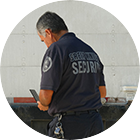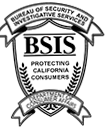Security is undoubtedly one of the most crucial aspects of hospitality business management. An excellent hotel security management system is important to protect everyone's security, including the guests and staff. Hotels and lodges are popular destinations for many traveling enthusiasts around the world.
While many hotels prioritize the security and safety of their patrons and employees, hotel management must be aware of certain security and safety issues to stay at the top of this cutthroat market. This article will discuss some of the most common hotel safety and security problems you should know about as a hotel owner or manager.
Common Security and Safety Issues that Many Hotels Encounter
Particularly in the hospitality industry, security can be a perplexing and difficult issue to handle, but every issue has a solution. Discussed below are common safety and security issues many hotels and lodging facilities encounter and tips on how to fix them:
i. Security Issues
Hotel security is crucial for comfort, and security issues can compromise a person’s liberty, health, and belongings. Below are some common security issues that could be detrimental to lodgers and staff:
Unknown and Unauthorized Visitors
It could be challenging for hotels and lodging facilities to keep track and monitor everyone. On many occasions, some visitors come to make an inquiry, book, or wait for their friends or relatives while lodging in hotels. In this situation, it could be challenging to know who is authorized by the management to be there and who is not.
To protect your hotel from unauthorized and unknown visitors, the management should update their security procedures often. For instance, you can effectively monitor your premises or investment by installing or updating its video surveillance technology and employing well-trained security guards.
Theft
In many hotels and lodging facilities, theft could be a serious issue if it is not tackled properly. The large number of cash transactions that hotels do daily makes them susceptible to theft and fraudulent activities. Most culprits for this offense are insiders and unauthorized people with malicious intent.
Since many hotels have many rooms and suites, it can be challenging to keep an eye on thieves, meaning they can enter other guest’s rooms and steal their items and belongings. Like cash fraud or property theft inside lodging facilities and hotels, theft can also occur in parking lots.
For instance, thieves can make their way to parking lots to steal car parts like side mirrors or enter the vehicle through unlocked windows to steal valuable items or the vehicle itself. Fortunately, there are several ways you can tackle or lessen theft and fraudulent cases in hotels, including:
- Installing surveillance cameras in strategic locations in the hotel space
- Promoting cashless transactions
- Promoting credit card transactions over cash
- Lessening employee turnover
Disorderly Behavior
Sometimes, even authorized visitors can be a nuisance and bothersome to the hotel managers and staff. Many visitors see hotels and lodging facilities as temporary abodes, and they can do anything and go undetected or unbothered. For instance, a guest with disorderly or unruly conduct can wreck your items, damage your property, or physically confront your staff.
While disorderly behavior is common in hotels with bars, even a sober person can maliciously wreck your property or fight your staff. Sufficient security measures are critical to dealing with unruly and disorderly visitors. To avoid unnecessary property damage on your hotel premises, you should employ guards to help end erratic behaviors and disputes as soon as they occur.
Cyber Threats
The hospitality industry is susceptible to cyber threats, affecting your business's progress. In these cases, perpetrators target the executives, employees, and guests. In some situations, connecting unprotected Wi-Fi on your premises and stealing information from all connected devices.
Many hotels and lodging facilities nowadays are using track-and-trace apps to help verify when there is a guest in their rooms and help lessen identity fraud cases. To reduce or stop cyber threat cases, the hotel management should do the following:
- Train employees on how to detect and prevent any cyber security issue
- Implement security measures to strengthen guest and employee data protection using firewalls and encrypted personal information and payments.
- Implement secure Wi-Fi
The above steps can help lessen cyber threats and ensure your guests’ information and data are safe.
Human Trafficking
Unfortunately, most human trafficking activities occur in lodging facilities and hotels. Human traffickers can use hotel rooms as an ideal location to conduct unlawful business or abuse their victims. To avoid human trafficking issues on your business premises, hotels should do the following:
- Train their staff members on how to recognize and report suspicious activities
- Implementing strict guidelines for allowing people to access guest rooms
- Work with non-governmental organizations and law enforcement officers to curb human trafficking cases in their communities
Terrorism
Another common security issue that is likely to occur in a hotel is terrorism. Hotels and lodging facilities are places prone to terrorism because their services often attract several people in one place or location. To mitigate or lessen the chances of terrorism cases occurring in a hotel, the management should do the following:
- Employ well-trained security personnel
- Install metal detectors in their entrance and exit areas
- Work with government agencies and law enforcement authorities to recognize potential security threats and respond quickly.
ii. Safety Issues
We all expect hotels to be sanctuaries of relaxation and comfort, but behind the scenes, several safety risks lurk, possibly compromising the safety and well-being of staff and guests. Explained below are common safety risks in many hotels and lodging facilities:
Fire Hazards
Generally speaking, hotels are at risk of fire hazards due to various factors, including flammable materials, electrical systems, and kitchen operations. Overheated appliances, faulty wiring, and negligent guest behavior can cause a fire in hotels, causing property damage and endangering the lives of guests and staff.
Fire Fighting equipment installation, staff training on fire evacuation and prevention procedures, and routine fire risk inspections can help reduce this risk.
Trips, Slips, and Falls
Cluttered walkways, uneven flooring, and slippery floors are common causes of trips, slips, and falls in most hotels and lodging facilities. Poorly maintained hotel floors, spills, and inadequate lighting and signage can increase the risks of these accidents, causing guests and staff to sustain injuries.
Hotels and other lodging establishments can reduce the risk of trips, falls, and slips by keeping clear pathways, enforcing strict housekeeping procedures, and adding non-slip flooring and signage.
Foodborne Illness
Food safety is a critical issue in the hospitality industry. Inadequate hygiene standards and improper food handling and storage put hotel guests and employees at risk of foodborne illnesses. Cross-contamination, improper cooking temperatures, and contaminated ingredients can all lead to outbreaks of foodborne diseases, endangering the health and well-being of guests.
Strict food safety regulations, staff education on safe food handling and storage methods, and routine inspections are some of the remedies that can help reduce the risk of foodborne illness and injury in hotels.
Drowning Incidents
The prevalence of drowning incidents is higher in lodging facilities and hotels with swimming pools, fish ponds, and other water features, primarily due to insufficient safety precautions. Lack of lifeguards, insufficient fencing, and non-compliance with safety guidelines are some of the factors that could increase the risk of fatal drowning accidents in hotels and lodging facilities.
Providing lifeguard supervision, implementing strict safety rules, and educating your hotel guests about pool safety can help prevent drowning incidents.
Electrical Hazards
Hotels are at risk of fires and electrocution due to overloaded circuits, defective wiring, and exposed electrical components. Unauthorized changes, poor maintenance, and aging infrastructure can exacerbate these risks.
Prompt repairs and maintenance of identified electrical hazards, staff training on electrical safety, and routine electrical inspections can help lessen or prevent dangers associated with electrical hazards.
Pest Infestations
Another common safety issue that can tarnish your hotel's reputation and affect guests' comfort is pest infestations. Listed below are some of the common causes of pest infestations in most lodging facilities and hotels:
- Infrastructure deficiency
- Inadequate pest regulation measures
- Poor sanitation
The hotel management can take the following actions to stop the problem of pest infestation:
- Maintain top-notch cleanliness within their facility
- Implement proactive pest management and control strategies
- Regular inspections of areas prone to pest infestation in the hotel
Hotels and other lodging facilities can establish the safe and secure environment their guests and employees deserve while on the property by recognizing and resolving these prevalent security and safety risks in the hospitality sector. Improving restaurant, bar, and hotel security can help hospitality business owners boost staff retention, ultimately increasing their profit margins.
Top Security Devices and Tools Hotels Must Have
Below are must-have tools and devices that hotels, bars, restaurants, and lodging facilities must have to boost security on their premises:
Surveillance Cameras
Hotel surveillance cameras can provide staff and guests with an additional layer of security and reduce or prevent criminal cases within the premises. Since they can capture and record real-time happenings, a person with the criminal intent to commit malicious or criminal activity in the hotel will be reluctant to do so because the prosecutor can use the camera footage as evidence against him/her.
Installing security cameras in your hotel or lodging facility can also boost your business reputation and create a sense of transparency and safety for staff and guests. Below are critical areas hotels, restaurants, and lodging facilities should consider when installing security surveillance cameras:
- Stairwells
- Elevators
- Hallways
- Verandas and lobbies
- Vending machines and ice areas
- Recreational spaces, like pool areas and gyms
- Cafes, restaurants, and other eating places
- Outdoor spaces like walking paths and patios
- Laundry facilities
Below are some of the most common and effective security cameras you would want to consider to improve your hotel's security and safety:
- Thermal cameras
- Covert cameras
- Dome cameras
- Bullet cameras
- Audio-enabled cameras
- Vandal-resistant cameras
Security Locks
Hotel security locks are tools that can help enhance the security of the premises. Aside from ensuring guests' belongings and properties are safe, installing security locks in the hotel and lodging facilities can help protect business assets and investments from landing in the wrong hands.
Below are examples of common and most preferred hotel security locks you can choose to boost the security of your premises:
- Traditional locks
- Electronic locks
- Smart locks
These days, certain hotels have magnetic strip locks, or "Magstripe," which work when a guest swipes or inserts a legitimate security card bearing the appropriate information into the system. Other types of security lock systems that you could consider to enhance the security of your hotel or lodging facility include:
- Wireless lock systems — As the name suggests, these security locks allow guests to access their booked hotel rooms without a key and monitor their room’s access remotely
- Biometric lock systems — These locks use facial recognition and fingerprints to allow guests to access their rooms. Although they offer top-notch security, they are costly to implement
- Remote lock systems — These locks are commonly used in hotels with vaults or restricted rooms containing sensitive data. As the name suggests, the hotel security management can control these locks remotely using a central control unit.
Factors to Consider When Looking for a Reliable Hotel Security Firm
You will not regret hiring a security company to help increase your hotel's security. Nevertheless, there are a few things you can do to narrow down your options when looking for a reputable security company or agency. These tips will help you find the high-quality hotel security services you need to make sure your guests and employees are safe and secure on the property:
-
Consider the Firm's Credibility and Reputation
Ensure the company you select has a good reputation with its previous customers. Past client reviews of your prospective security firm can speak volumes about its reputation.
-
Consider the Firm's Experience
While every expert was once an amateur, you cannot risk settling for the services of an inexperienced security firm. Ensure the security firm you work with understands what it takes to ensure your hotel guests and staff are safe and secure.
-
Consider the Firm’s Cost of Services
Choose a security firm that offers budget-friendly hotel security services. Before signing any agreement with your prospective security firm, you should inquire about the cost of its services. If the firm's service fee exceeds your budget, you should find a different, cost-friendly security firm.
-
Consider Whether the Security Firm Has Proper Licensing Credentials
Finally, the security firm you decide to hire to help improve your hotel security must have proper licensing credentials. Aside from showing a sense of professionalism, having proper licensing credentials shows the firm is qualified to offer hotel security services.
The Most Common Questions Regarding Safety and Security in Hotels
The majority of people frequently ask the following questions concerning hotel safety and security:
1. What Does Hotel Security Mean in the Hospitality Industry?
Hotel security in the hospitality industry is paramount, and it refers to the measures that hotels and lodging facilities take to safeguard or protect the security of their guests and staff on the premises. Examples of these measures include:
- Installation of security locks
- Installation of surveillance cameras
2. Who is in Charge of or Responsible for a Lodging Facility or Hotel Security?
Generally speaking, the hotel management is responsible for security in the entire premises. One way of ensuring a hotel or lodging facility is reasonably safe and secure for the guests and staff is to employ experienced and qualified security officers.
3. Should a Hotel or Lodging Facility Have Security?
Yes, any hotel, small or large, must have proper security measures. Since hotels host a variety of guests from different locations, it is your responsibility as a hotel owner to put their well-being and safety first.
4. What is a Security System in a Hotel?
A hotel’s security system is an all-encompassing collection of policies and tools used to ensure guests and staff on the premises are safe. Additionally, the hotel security system also helps protect the assets and properties within the premises.
Take Away Points
Security and safety issues in hotels and lodging facilities are common and could present challenges for the management and staff. However, if your hotel has an excellent security system in place, you can prevent these issues before they ruin the reputation of your business.
Identifying security issues and safety hazards in a hotel should be management’s top priority. If you are a hotel owner and want to enhance its security, you should work with a security agency that understands the importance of hotel security.
Find a Security Service Provider Near Me
Hotels and lodging facilities face various safety and security issues that impact the well-being and safety of guests and staff. By implementing more stringent security measures, efficient staff training, and emergency protocols, hotels can establish a safer and more secure environment for everyone who enters the premises.
If you have a security challenge in your hotel, restaurant, or lodging facility, our reliable security experts at Green Knight Security can help. We invite you to call us at 844-457-8326 to discuss your hotel’s security concerns with our seasoned and reputable security experts wherever you are in Los Angeles.







